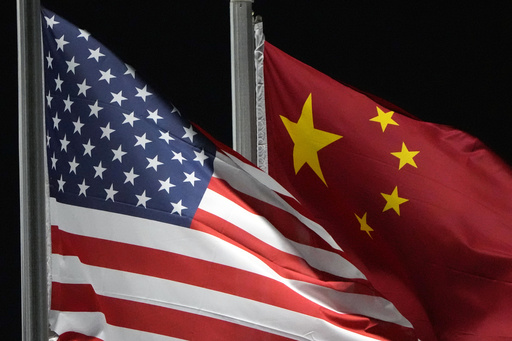BEIJING — In a significant response to the recent announcements from the United States concerning military assistance and sales to Taiwan, the Chinese government has imposed sanctions on seven companies. This action follows the U.S. government’s approval of its annual defense spending bill, which China criticized for containing multiple unfavorable references to the nation, according to a statement from the Chinese Foreign Ministry.
China has consistently opposed military assistance provided by the U.S. to Taiwan, a self-governing island that Beijing views as a part of its territory. In retaliation, the Chinese government frequently implements sanctions against entities involved in arms sales or military aid to Taiwan. Typically, the sanctions have minimal effect since American defense contractors do not trade arms or military equipment with China. The U.S. remains the primary supplier of weapons to Taiwan to aid in its defense efforts.
The companies facing sanctions include Insitu Inc., Hudson Technologies Co., Saronic Technologies, Inc., Raytheon Canada, Raytheon Australia, Aerkomm Inc., and Oceaneering International Inc. The Foreign Ministry indicated that senior executives associated with these companies would also be subjected to sanctions, although specific names were not disclosed.
Assets owned by these companies within China will be frozen, and individuals or organizations in the country are barred from conducting any business activities with them, according to the statement.
Last week, U.S. President Joe Biden authorized a military aid package amounting to up to $571 million, which includes various Defense Department materials and services, as well as military education and training for Taiwan. In a separate announcement, the Defense Department revealed that $295 million worth of military equipment sales had been approved.
The new U.S. defense budget allocates $895 billion to military initiatives and emphasizes a more adversarial stance toward China. It establishes a fund potentially aimed at providing military resources to Taiwan, paralleling the support given to Ukraine. Additionally, the legislation broadens the restrictions on U.S. military procurement of Chinese goods, covering items from drone technology to food products for military use.
Zhang Xiaogang, a spokesperson for the Chinese Defense Ministry, claimed earlier this week that the U.S. is exaggerating the so-called threat posed by China as a pretext for escalating military expenditures. “The U.S. military budget has exceeded all others globally and continues to grow annually,” he noted during a press conference. “This clearly highlights the aggressive stance of the U.S. and its relentless pursuit of dominance and expansion.”
The Foreign Ministry stated that the actions taken by the U.S. contradict existing agreements between the two nations regarding Taiwan, intrude into China’s internal matters, and threaten the country’s sovereignty and territorial integrity.
Earlier this month, Taiwan’s government reported that China had deployed numerous ships to conduct exercises resembling a blockade around the island. This maneuver was regarded by Taiwan as detrimental to regional peace and stability, impacting international shipping and trade. China has yet to acknowledge or comment on these military exercises.



